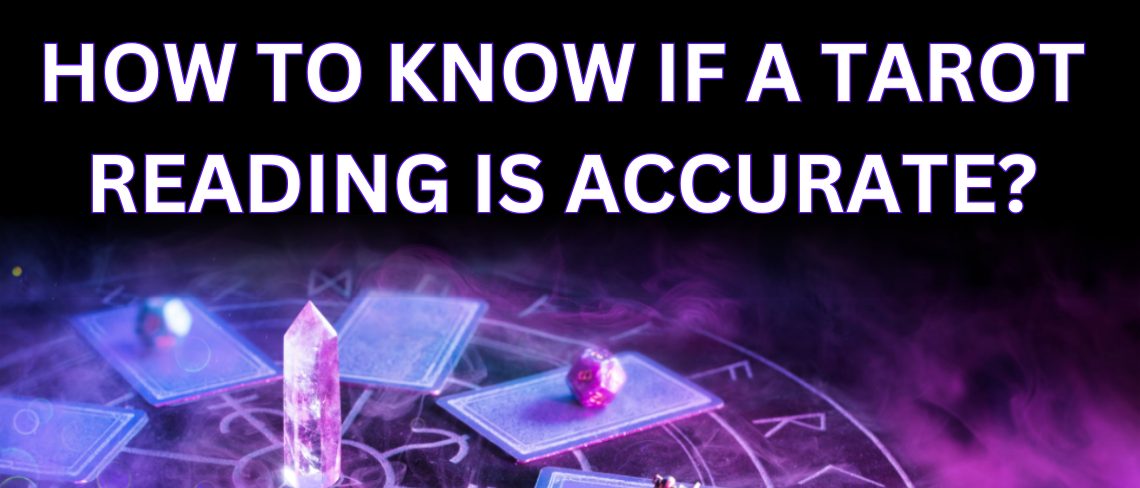Tarot reading, a practice dating back to the 15th century, is a method used to gain insights into various aspects of life. As Britannica explains, it’s a deck of cards used in fortune-telling, a tool for reflection, decision-making, and exploring life’s mysteries. But how can you determine if a tarot reading is accurate? This question is a bit complex, and this article aims to simplify it.
Understanding Tarot Reading
In tarot, accuracy doesn’t mean absolute right or wrong, like in a maths problem. Tarot is subjective, more about how the cards resonate with your personal situation. As Theresa Reed, a well-known tarot expert, states on her website The Tarot Lady, “Tarot cards don’t predict your future; they reveal possibilities based on your current path.” ‘Accurate’ here means that the reading reflects your situation and offers relevant guidance.
The Role of the Reader
The reader plays a crucial role in the accuracy of a tarot reading. A proficient tarot reader interprets the cards using their knowledge, intuition, and understanding of your situation. They should make you feel comfortable and heard, asking questions to relate the cards to your life. A good reader should show empathy, understanding, and a clear knowledge of the tarot.
The Connection
An accurate reading requires a strong connection between you, the reader, and the cards. This connection is intangible, but you should feel that the reader understands you and your situation.
The Cards and Their Spread
Each tarot card has multiple meanings, and the way they are laid out, known as the ‘spread,’ matters. As explained in Biddy Tarot’s guide, an accurate reading interprets the cards in a way that aligns with your life and relates the card’s meaning to its position in the spread.
Resonance and Guidance
If the reading resonates with you, providing a sense of recognition or understanding, it’s likely accurate. It should reflect your experiences, feelings, and situations. Additionally, an accurate reading offers practical guidance. It provides insights and suggestions that you can apply in your life.
Empowerment and Open-mindedness
Tarot should empower you, not dictate your life. An accurate reading helps you see your potential and choices, without making decisions for you. It requires an open mind. Tarot might not always tell you what you want to hear, but what you need to hear.
Timing and Skepticism
Sometimes a reading might not make sense immediately but becomes clearer later as events unfold. It’s also perfectly fine to be skeptical. However, you must be open and willing to consider the messages from the cards for an accurate reading.
Intuition and Practice
Trust your gut. If something doesn’t feel right about the reading or the reader, it’s okay to question it. Understanding tarot takes time, and the more you engage with it, the better you’ll be at identifying accurate readings.
Self-Reflection and Ethics
Tarot is a tool for self-reflection. Use it to explore your thoughts, feelings, and actions. Furthermore, a good tarot reader follows ethical guidelines, respects your privacy, never scares you, or makes grand predictions, as affirmed by Tarot Association’s code of ethics.
Validation, Flexibility, and Follow-up
Often, tarot validates what you already know. An accurate reading will echo your inner thoughts and feelings. Tarot is flexible. The same cards can mean different things to different people. An accurate reading considers your unique situation. After a reading, reflect on the messages. Over time, you’ll see how they apply to your life. This can confirm the accuracy of the reading.
The Mystery
Tarot has a touch of mystery. It’s not an exact science. As Rachel Pollack, an acclaimed tarot author, writes in ‘Seventy-Eight Degrees of Wisdom,’ “embrace the unknown and let it guide you.”
In conclusion, tarot is a personal journey. It’s a tool for self-discovery and growth. The true accuracy of a tarot reading lies in how it speaks to you, guides you, inspires you, and helps you navigate your life’s journey. Trust the process and remember, it’s not about prediction, but about perception and personal growth.




